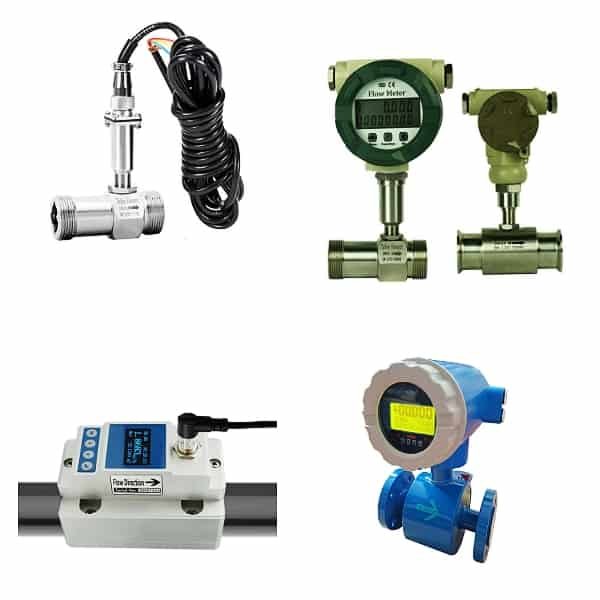The world of flow measurement is vast, but one particular type of instrument that often stands out is the 1 inch flow meter. Widely used across various industries, this device is essential for accurate flow measurement in pipes with a diameter of 1 inch. We will check the different types of 1 inch flow meters, their working principles, advantages, and ideal applications. In this way, you can choose the applicable 1 inch flow meters.

Featured 1 Inch Flow Meters
More About 1 Inch Flow Meters
Choosing the Right 1 Inch Flow Meter
Choosing the perfect 1 inch flow meter for your specific job can seem tricky, but it’s really important if you want to measure things correctly and make your system work its best. Here, we’ll go through a list of key things to think about when you’re picking out the best flow meter:
- Type of Fluid: Know what kind of fluid you’ll be measuring. Is it a liquid, gas, or steam? What’s its thickness (or viscosity) and temperature range? Different types of flow meters work best with different kinds of fluids.
- Flow Range: Figure out the lowest and highest flow rates you need to measure for your job. Flow meters can measure different amounts, so it’s really important to pick one that can handle the range you need.
- Mounting Sizes: As we mentioned before, we can set up different mounting sizes for 1 Inch Flow Meters, like the ANSI DN25 flange.
- Accuracy Requirements: Work out how accurate you need your measurements to be. Different flow meters can be more or less precise, so it’s important to pick one that can be as accurate as you need it to be.
- Installation Constraints: Think about where you’ll install it, like how much space there is, how easy it is to get to, and if there’s anything in the way. Some flow meters need to be installed in specific ways, which could affect your choice.
- Operating Conditions: Keep in mind the pressure and temperature of your system when it’s working. Choose a flow meter that can handle these conditions without losing performance or accuracy.
- Material Compatibility: Make sure the flow meter’s materials won’t react with the fluid being measured. This is really important for stopping corrosion and making your flow meter last longer.
- Maintenance Requirements: Think about how much upkeep the flow meter needs. Some types need more regular maintenance than others, which could affect your choice depending on how much upkeep you can do.
- Cost and Budget: Keep in mind the cost of the flow meter, including buying it, setting it up, and keeping it running. Keep your budget in mind, but also think about the long-term value of the flow meter.
By thinking about these things, you can make a smart choice when picking the right 1 inch flow meter for your job. Remember, different types of flow meters have their own pros and cons, so understanding what you specifically need is key to choosing the best one.
More Flow Measurement Solutions
Flow Meter Selection Guide 101: Find the Perfect Fit for Your Application
Top Industrial Heating Oil Flow Meters
The Different Types of Inline Oil Flow Meters
Condensate Flow Meter-Steam Condensate Flow Meter|Types & Selection Guide
Air Flow Measurement Instruments for Industrial Harsh Conditions
Flow Measurement Units-What Is GPM in Flow Meter?
Flow meters are critical components in a variety of industries, and the 1 inch flow meter is no exception. With several types available, each with its unique features and advantages. It’s important to understand your specific needs and applications to choose the right one.
At Sino-Inst, we are an experienced manufacturer and supplier of industrial flow measurement instruments. With a wide range of 1 inch flow meters, we cater to various industries and applications. Plus, we offer customization to meet your unique requirements. If you need help selecting the right flow meter or have any questions, don’t hesitate to get in touch with us.
Request a Quote
Wu Peng, born in 1980, is a highly respected and accomplished male engineer with extensive experience in the field of automation. With over 20 years of industry experience, Wu has made significant contributions to both academia and engineering projects.
Throughout his career, Wu Peng has participated in numerous national and international engineering projects. Some of his most notable projects include the development of an intelligent control system for oil refineries, the design of a cutting-edge distributed control system for petrochemical plants, and the optimization of control algorithms for natural gas pipelines.